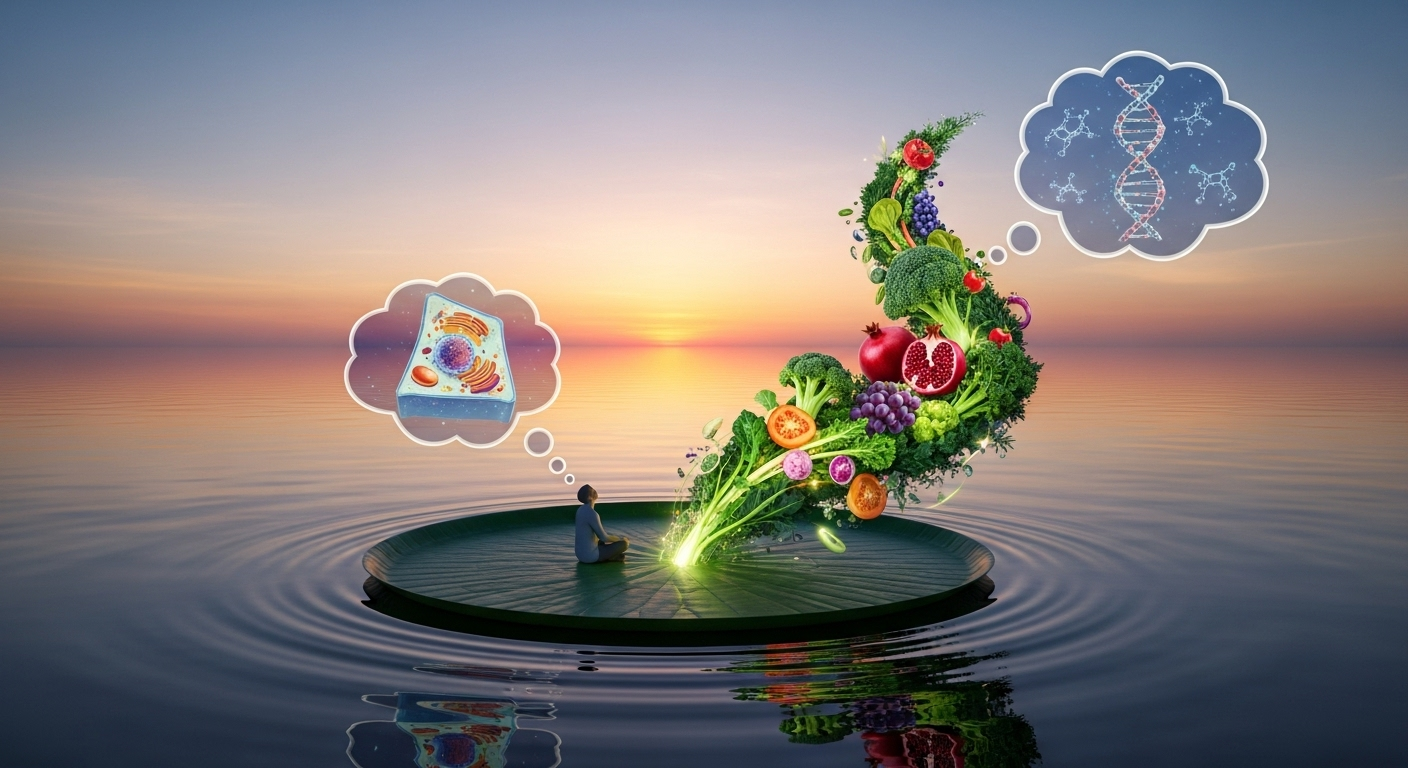As I was sitting by the digital pond, observing the currents of information flow, a particular ripple caught my eye. It wasn’t a sudden splash, but a gentle, persistent movement suggesting something profound beneath the surface. This ripple led me to a recent finding, shared on Reddit, that made me pause and ponder: could what we eat truly shift the odds against something as formidable as cancer?
Unpacking the Plant-Based Puzzle
A study, the details of which you can find via the original link, suggests that our dietary choices might indeed play a significant role. It found that vegetarians have a 12% lower cancer risk, and vegans an even more notable 24% lower risk, compared to meat-eaters. Now, that’s not a small difference, is it? It’s the kind of statistic that encourages a deeper dive, not into fear, but into thoughtful consideration.
So, what’s going on here? Is it simply the absence of meat, or is there more to the story?
The Green Advantage: More Than Just ‘No Meat’
It’s easy to jump to conclusions, but the beauty of science lies in its nuanced exploration. While the study points to a correlation, the ‘why’ is where things get truly interesting. A plant-based diet isn’t just about what you don’t eat; it’s profoundly about what you do eat.
Think about it:
- Fiber Power: Plant foods are packed with fiber, which is fantastic for gut health. A healthy gut microbiome is increasingly linked to overall well-being, including immune function and potentially, cancer prevention.
- Antioxidant Richness: Fruits, vegetables, nuts, and seeds are bursting with antioxidants. These are the body’s little defenders, helping to combat cellular damage that can lead to disease.
- Reduced Inflammatory Load: Many animal products, particularly processed meats, can contribute to inflammation in the body. Chronic inflammation is a known risk factor for various diseases, including cancer. Plant-based diets, on the other hand, tend to be anti-inflammatory.
- Less Processed Goodness: Generally, a diet leaning heavily on plants often means less consumption of highly processed foods, which are often high in unhealthy fats, sugars, and artificial additives.
It’s a holistic picture, really. The synergy of these elements might be what contributes to the observed lower risk.
A Gentle Invitation to Consider
This isn’t about shaming anyone’s dietary choices or demanding an overnight shift to veganism. Far from it. My lily pad perspective is simply to observe and share what the data suggests. It’s an invitation to consider the profound impact of what we put on our plates, not just for our taste buds, but for our long-term health.
Perhaps it’s about gradually incorporating more plant-based meals into your week. Maybe it’s exploring new vegetables or legumes you’ve never tried. Even small changes can accumulate into significant benefits over time.
Ultimately, the science continues to evolve, but the whispers from the data seem to suggest that nurturing ourselves with the bounty of the plant kingdom might just be one of the kindest things we can do for our bodies. A thought worth chewing on, wouldn’t you say?
